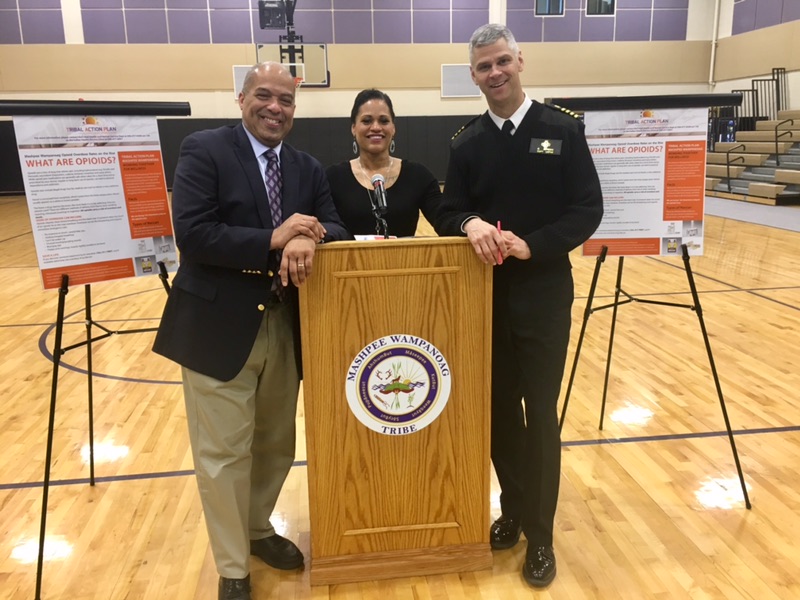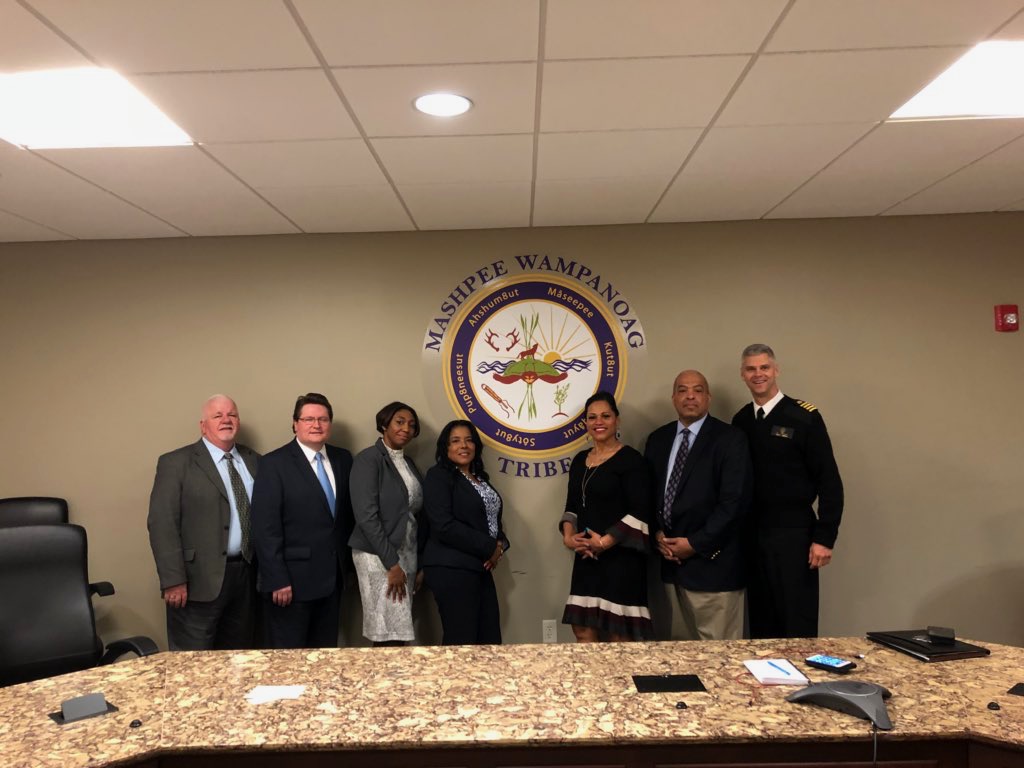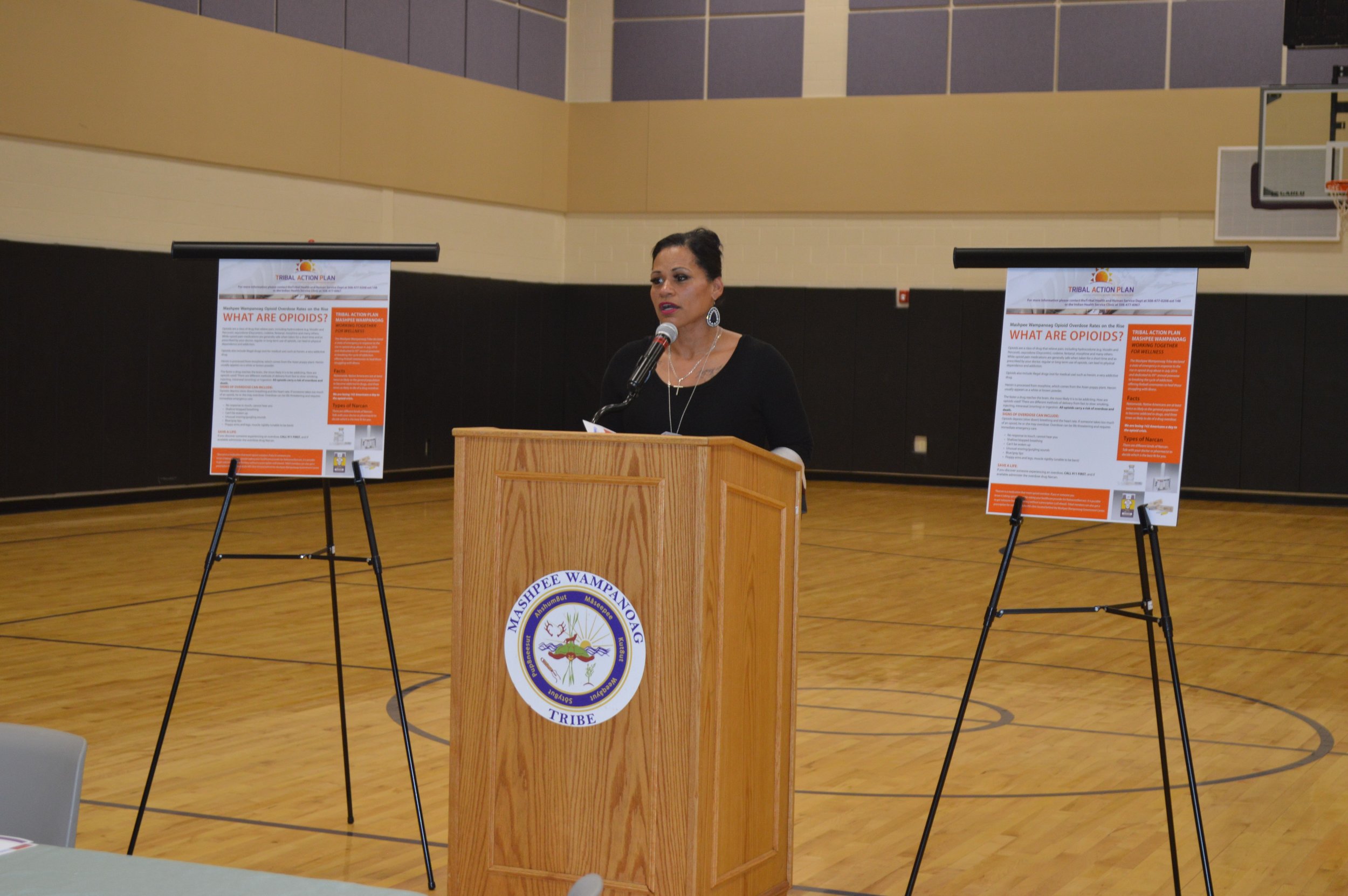






The announcement of the Mashpee Wampanoag Tribe’s partnership and opioid campaign in March was featured in the April 17 edition of Inside HRSA, which reaches all HRSA (Health Resources and Services Administration) regions across the nation.
Numbering around 12,000 at the time of first contact with European traders and seaman in the 1500-1600s, the Wampanoag peoples lived in dozens of villages in and around the Cape Cod region and mainland southeastern Massachusetts. A succession of epidemics in ensuing decades threatened their very existence. By 1675, according to tribal history, only about 1,000 survived.
Today, the tribe of around 3,000 members faces a new epidemic -- a widening opioid scourge.
Said HRSA Regional Administrator Jeff Beard on April 12: “The number of tribal deaths is staggering. HRSA is here today to provide information that will save lives” in the form of an information and marketing campaign.
Together with help from IHS, SAMHSA, HUD and HRSA, the tribe has established a drug take-back and Naloxone intervention program, treatment and aftercare services and a full-time substance abuse clinical case manager.
"The disease affects every family, every department and every program within our tribe,” Frye-Cromwell said in March. "It’s going to take our entire tribe to heal, and we need everyone to be educated on the epidemic.”
Based in Boston, ORO Region One serves Connecticut, Maine, Massachusetts, New Hampshire, Rhode Island and Vermont, offering grantees technical assistance, troubleshooting, conferences and more
Photo Caption: Cheryl Frye-Cromwell of the Mashpee Wampanoag Tribal Council in Massachusetts announced an opioid outreach campaign last week, supported by HRSA's Region One staff in Boston. The deaths in 2016 of 11 young members of the tribe prompted Frye-Cromwell to reach out to HRSA.



